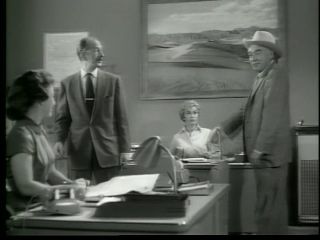The MacGuffin: News and Comment (05/Apr/2008)
(c) Ken Mogg (2008)
April 5
Have found myself engaged in correspondence about Psycho (1960) in the past few days, much of it on the 'Film-Philosophy' Forum in response to someone's post about, of all things, the Old Testament narrative of Abraham and his son Isaac. That's not important. But I must say I welcomed the correpondence, which yielded some non-typical ways of viewing the nature of Hitchcock's film. True, I can't agree with BH that Norman Bates is an exemplar of Nietzschean values, but here is how he puts the matter: 'In the simplest of language, ignoring society's number one rule [against murder] for the sake of personal pleasure is about as Nietzschean as one can get.' Hmm. I thought Norman killed out of pain (berated by a jealous 'Mother' whenever he fancied another woman) rather than for pleasure, and that one of the things we know about him is that he hasn't 'grown up' but has become fixated at a level of Oedipal immaturity. Whatever pleasure he has found in placating 'Mother' comes not from killing but rather from 'secondary gains' like playing the dutiful son, or, sometimes, dressing up as 'Mother' herself and having 'conversations' with her. That doesn't sound particularly Nietzschean to me. But another correspondent, IK, really made me think about what Norman Bates 'means' to the viewer. I had trotted out my (no doubt tired) suggestion that Norman does provide an extension of 'normal' behaviour. I wrote: 'This is the lesson, after all, of Raymond Bellour's celebrated essay on Psycho, "Psychosis, neurosis, perversion". The film begins in normality, and ends with Norman (a name implying 'Nor man nor woman' perhaps? Or simply 'Not normal'?). Norman is a psychotic, the most extreme point of the spectrum that includes less extreme instances of deception and perversion and lust and aberrant behaviour. We meet four of them in the realty office at the start (see frame-capture below): impetuous Marion, soon to steal $40,000; timid Caroline, who took sleeping-pills on her wedding night; affable Lowery, who keeps a bottle of liquor hidden in his desk; and sleazy Cassidy, who defrauds the tax people and covets a dirty weekend with Marion.' What IK wrote back was this (slightly condensed and re-worded): 'Norman Bates is not only psychotic but also a coward. He preys on people and within the sanctuary of his delusional world he finds enough strength and motivation for a kill. In an apparent social context we're told Norman would not even hurt a fly. That is because being a psychotic and lacking control makes him feel low self-esteem and vulnerable. He is also envious and vainglorious, so that in his prying on others, the ones who are deviant within the acceptable norms of society, they provide him with stimulus and provocation just sufficient for him to be outraged and to kill. This again is a case of feeling empowered and being normal (balanced). Until he is faced with another provocation that makes him unleash his psychotic behavior, he feels satisfied/fulfilled and acts normal. Norman is at best an Imaginary role player ['Imaginary' in the Lacanian sense] whereby, according to his own world view (a construct), being delusional is all right (normal). Otherwise the fact that Norman is a nut-case hiding in the closet to be discovered (i.e., he needs help), and that 'Normans' can be found within all cultures and religious backgrounds, is what makes Psycho a sublime experience.' Fascinating, IK. I might quibble with some of your points (e.g., your calling Norman a 'coward'), but this way of seeing the film does seem to explain why we might almost want to 'thank' Norman for making us feel more 'alive', for showing us the 'heroism' (opposite of 'cowardice') in our own lives. Mind you, the film works on a more immediate human level, too. I was reminded of this by an email that came today from Buddhist friend BD, in which he talks about 'tranquility'. Here's the relevant passage: 'It is rather like what happens to Marion in the parlor with Norman. Suddenly, she is being compassionate and listening to another person's life. She focusses on Norman instead of herself, and this practice allows her to see her own situation more clearly. The grasping attachment that made her steal the money now appears to her as the trap that it is. Marion unattaching from her problems in a moment of compassion for Norman sets her free. She can strip and wash herself, as if the attachments were going down the drain. [The parlor scene represents] some of the most beautiful moments in all of cinema.' Indeed. Thanks, BD. And also BH and IK.
This material is copyright of Ken Mogg and the Hitchcock Scholars/'MacGuffin' website (home page) and is archived with the permission of the copyright holder. |

